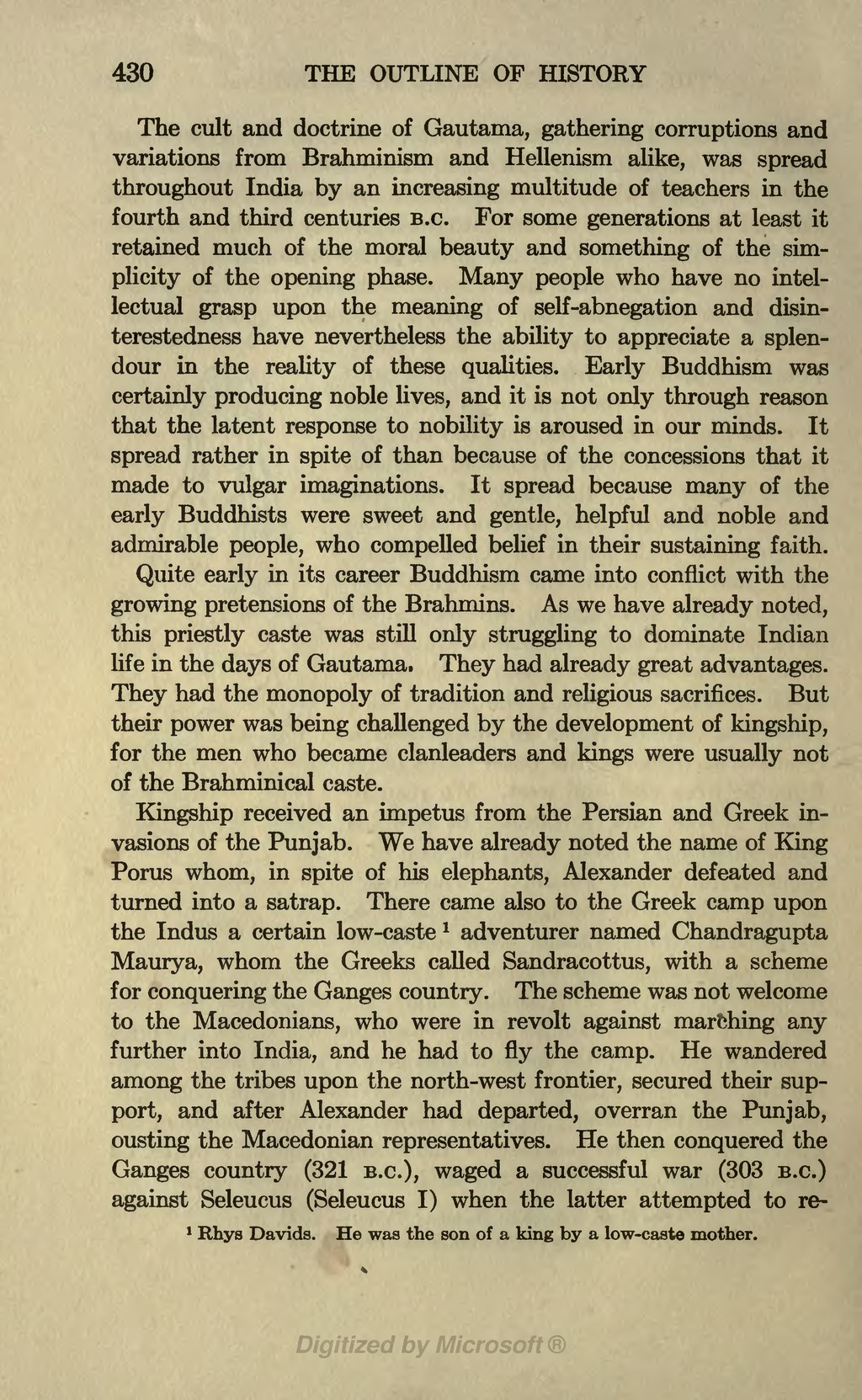The cult and doctrine of Gautama, gathering corruptions and variations from Brahminism and Hellenism alike, was spread throughout India by an increasing multitude of teachers in the fourth and third centuries B.C. For some generations at least it retained much of the moral beauty and something of the simplicity of the opening phase. Many people who have no intellectual grasp upon the meaning of self-abnegation and disinterestedness have nevertheless the ability to appreciate a splendour in the reality of these qualities. Early Buddhism was certainly producing noble lives, and it is not only through reason that the latent response to nobility is aroused in our minds. It spread rather in spite of than because of the concessions that it made to vulgar imaginations. It spread because many of the early Buddhists were sweet and gentle, helpful and noble and admirable people, who compelled belief in their sustaining faith.
Quite early in its career Buddhism came into conflict with the growing pretensions of the Brahmins. As we have already noted, this priestly caste was still only struggling to dominate Indian life in the days of Gautama. They had already great advantages. They had the monopoly of tradition and religious sacrifices. But their power was being challenged by the development of kingship, for the men who became clanleaders and kings were usually not of the Brahminical caste.
Kingship received an impetus from the Persian and Greek invasions of the Punjab. We have already noted the name of King Porus whom, in spite of his elephants, Alexander defeated and turned into a satrap. There came also to the Greek camp upon the Indus a certain low-caste[1] adventurer named Chandragupta Maurya, whom the Greeks called Sandracottus, with a scheme for conquering the Ganges country. The scheme was not welcome to the Macedonians, who were in revolt against marching any further into India, and he had to fly the camp. He wandered among the tribes upon the north-west frontier, secured their support, and after Alexander had departed, overran the Punjab, ousting the Macedonian representatives. He then conquered the Ganges country (321 B.C.), waged a successful war (303 B.C.) against Seleucus (Seleucus I) when the latter attempted to re-
- ↑ Rhys Davids. He was the son of a king by a low-caste mother.
